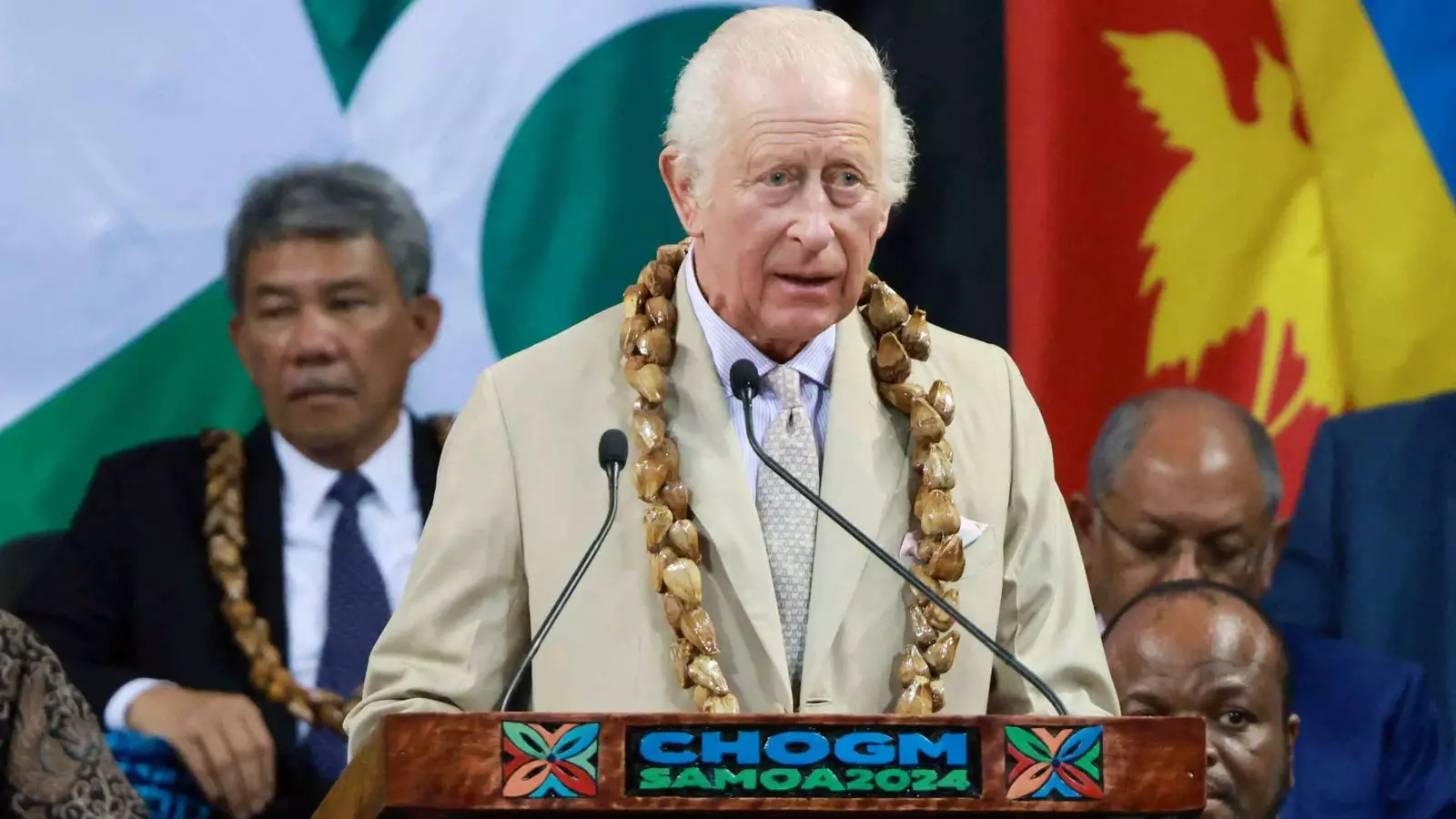The recent Commonwealth leaders’ summit in Samoa marked a significant occasion for the King, who delivered a high-profile speech recognizing his new role as head of the Commonwealth. This event was not merely ceremonial; it highlighted the complex and often contentious negotiations surrounding historical injustices, especially those related to slavery. While the central theme of the meeting emphasized a “common future,” the underlying sentiments among member nations reveal a stark reality of rising divisions and unresolved grievances.
The King’s address poignantly acknowledged the dark chapters of the past, emphasizing the importance of understanding history to advocate for a more equitable future. His remarks encapsulated an awareness of the “painful aspects of our past,” an aspect significant to both Caribbean and African nations with historical ties to the transatlantic slave trade. By stressing the need to learn from historical errors, he attempted to strike a sensitive balance; however, without directly addressing slavery or reparations—a point of contention for many attendees—his words left considerable room for interpretation and dissatisfaction.
Reparations for slavery continue to loom large over the Commonwealth’s future. Advocacy groups like Caricom have become increasingly vocal, demanding more than mere acknowledgment; they seek tangible actions and formal apologies. Eric Phillips, a prominent figure within the organization, has articulated a vision for a reinvigorated Commonwealth—one that recognizes the need for reparative justice as a condition for future economic partnerships. His pointed remarks regarding the current political landscape reflect a deep-seated disillusionment, particularly aimed at leaders who sidestep critical discussions on reparations.
Caught between historical accountability and the political realities of his position, the King faces a tightrope walk. Buckingham Palace insists that he remains apolitical, yet the royal family’s historical involvement in the slave trade complicates his attempts at reconciliation. While the King has previously expressed “personal sorrow” regarding these events—commissioning research to better understand his familial legacy—the weight of historical responsibility continues to cast shadows over his leadership.
The King’s closing remarks aimed for an optimistic outlook, urging unity and progress. However, many observers found these sentiments to be insufficiently grounded in actionable policy. The notion of crafting a “future of harmony” resonates, yet it runs the risk of being perceived as merely aspirational without concrete steps toward recognition and reparation for the past.
Ultimately, while the King’s speech sought to navigate a delicate and complex landscape, it ultimately fell short of making a significant impact where it is most needed. With tensions simmering within the Commonwealth, it seems that the path toward genuine reconciliation and a unified future remains fraught with challenges, inviting ongoing dialogue about the past and its implications for the present and future. The King’s opportunity to forge a more solid bridge toward healing has, for many, become a reflection of missed potential.


Leave a Reply